Introduction to IOSH MS Course in Karachi
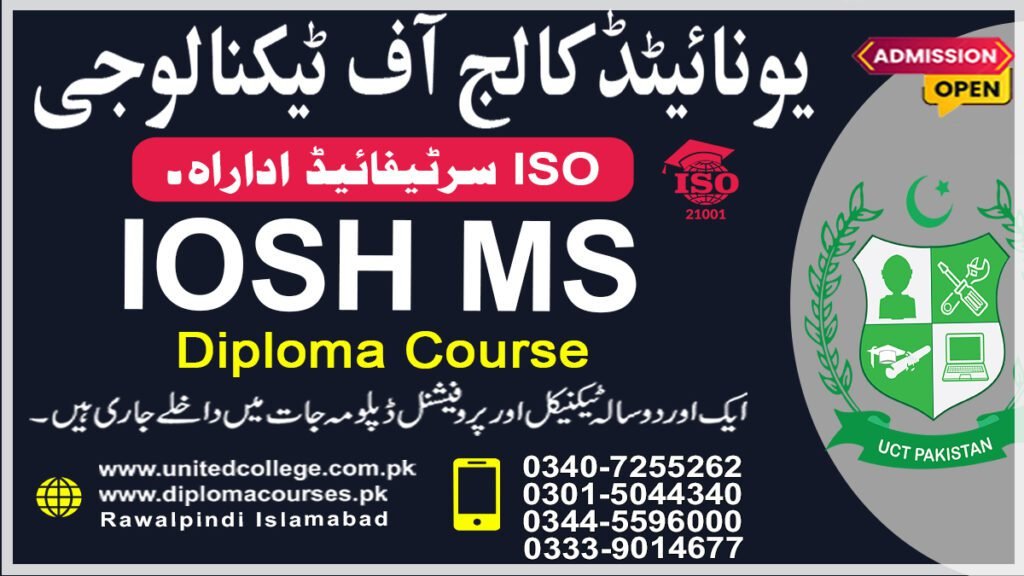
If you’re thinking about building a solid career in health and safety management, then getting certified in IOSH Managing Safely (MS) is your perfect first step. In a bustling city like Karachi, workplace safety is a growing concern across all industries. That’s where the IOSH MS course in Karachi offered by United College of Technology (UCT) comes into play, helping professionals acquire the skills to manage health and safety with confidence.
What is IOSH?
IOSH stands for the Institution of Occupational Safety and Health, a globally recognized chartered body that provides safety courses for working professionals. Their Managing Safely course is ideal for supervisors, team leads, and managers who are responsible for ensuring safe operations in the workplace.
Importance of IOSH Managing Safely Certification
The IOSH MS certification is not just another certificate to hang on the wall. It’s a practical, hands-on training that teaches how to identify hazards, assess risks, and take preventive measures. This course equips you to create a culture of safety, reduce accidents, and comply with workplace regulations.
Relevance of Health and Safety Training in Pakistan
Pakistan’s industries—especially construction, manufacturing, oil & gas, and logistics—are under pressure to meet international safety standards. The IOSH MS course serves as a foundation for NEBOSH and OSHA certifications and helps local professionals match global safety expectations.
United College of Technology – Your Gateway to IOSH
About United College of Technology
Located in the heart of Karachi, United College of Technology (UCT) has become a trusted name in technical and professional education. Known for its industry-focused programs, UCT offers a variety of internationally accredited courses.
Why Choose UCT for the IOSH MS Course?
UCT stands out for several reasons:
- Experienced trainers with real-world HSE experience
- Modern classrooms with interactive learning tools
- Supportive learning environment with career guidance
Recognition and Accreditations
UCT is an authorized training provider for IOSH, which means your certification holds value not just in Pakistan, but across Gulf countries, the UK, and beyond.
Detailed Overview of IOSH Managing Safely Course
Course Objectives
The IOSH MS course is designed to:
- Equip managers and supervisors with essential safety knowledge
- Enable them to recognize and mitigate risks
- Help them understand their legal responsibilities
Target Audience
This course is ideal for:
- Team Leaders
- Site Supervisors
- Project Managers
- Anyone responsible for workplace safety
Course Modules and Syllabus
Some of the key modules include:
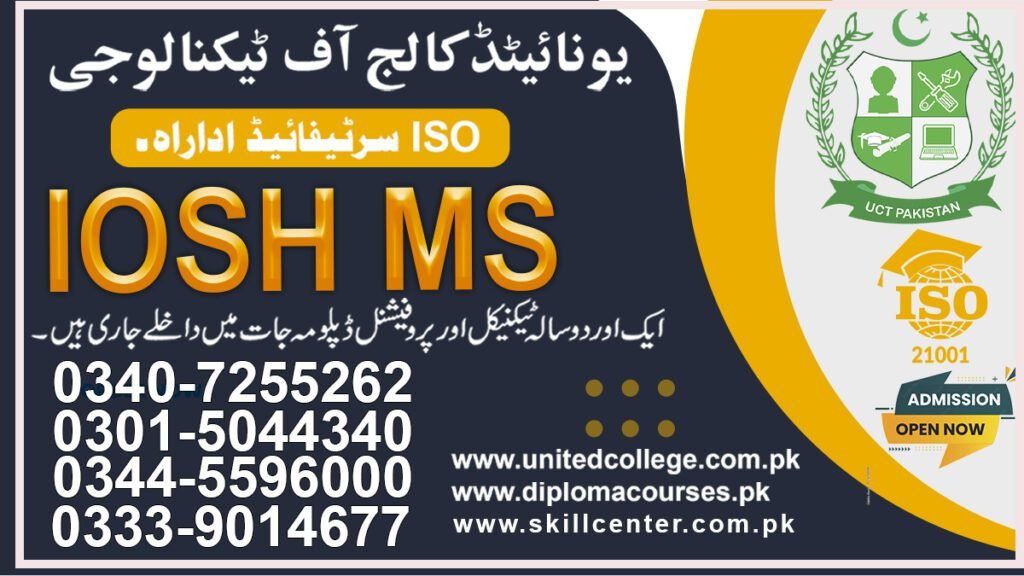
Assessing Risks
Understand how to measure and evaluate risk levels and implement control measures.
Controlling Risks
Learn practical steps to manage, reduce, or eliminate risks.
Understanding Responsibilities
Know your role and duties in promoting a safe work culture.
Identifying Hazards
Get trained on spotting potential threats before they turn into incidents.
Investigating Accidents
Master the art of incident analysis and reporting.
Learning Experience at United College of Technology
UCT combines classroom theory with hands-on learning. Group discussions, case studies, and role-playing are often part of the course.
Duration and Schedule
The course typically spans 1 month, making it easy for working professionals to attend on weekends or evenings.
Practical Sessions and Real-World Case Studies
You’ll dive into real-life scenarios, which makes learning relatable and actionable.
Career Scope After IOSH MS Certification
Job Opportunities in Pakistan and Abroad
Once certified, you’ll be eligible for HSE roles in construction, oil & gas, and manufacturing—not just in Pakistan but also in the Middle East and Europe.
Industry Demand for HSE Professionals
Safety officers are in high demand due to growing workplace regulations and audits. An IOSH MS certificate adds a competitive edge to your CV.
IOSH MS for Career Advancement
It’s not just a certificate—it’s a stepping stone. Most professionals use IOSH MS as a base to move into NEBOSH, OSHA, and ISO 45001 certifications.
Admission Process and Fees
Enrollment is simple. Just visit UCT’s website or walk into their Karachi campus with your CNIC copy and passport-sized photos.
Course Fees and Payment Plans
UCT offers affordable course fees with easy installment options—making it accessible for students and working individuals.
Certification and Examination Details
After successful completion, students receive an official IOSH certificate. The assessment includes a multiple-choice test and a risk assessment project.
Conclusion
If you’re serious about making a mark in the health and safety sector, the IOSH MS course in Karachi offered by United College of Technology is the smart move. You’ll gain real-world skills, global recognition, and a pathway to better job opportunities—all in just a few days of training.
FAQs
Q1: Is the IOSH MS course suitable for beginners?
Yes, it’s designed for professionals with little to no prior health and safety training.
Q2: What documents are required to enroll?
CNIC copy, passport-size photos, and academic qualifications (if any).
Q3: Does the certification have global recognition?
Absolutely. IOSH is accepted in the UK, UAE, Saudi Arabia, and many other countries.
Q4: Can I attend the course online?
Currently, most sessions are held on campus, but UCT may offer hybrid options in the future.
Q5: What is the difference between IOSH and NEBOSH?
IOSH is an entry-level safety course; NEBOSH is more advanced and technical. Many start with IOSH and then move on to NEBOSH.
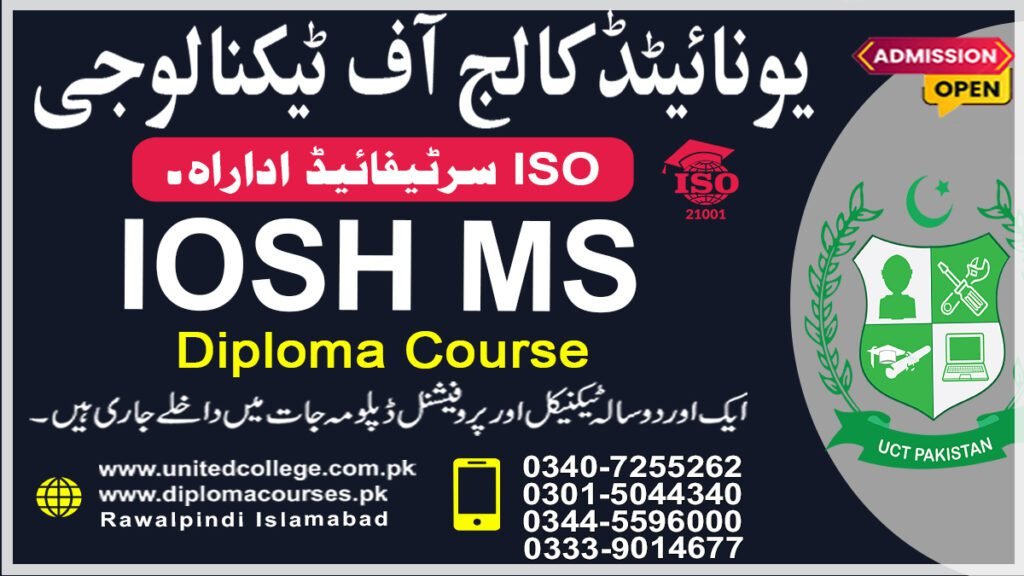
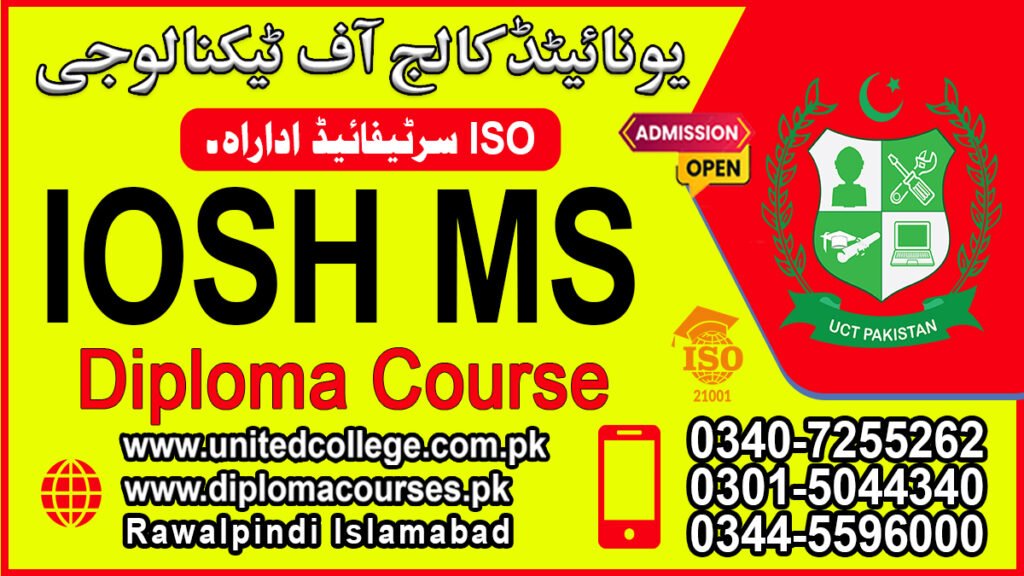
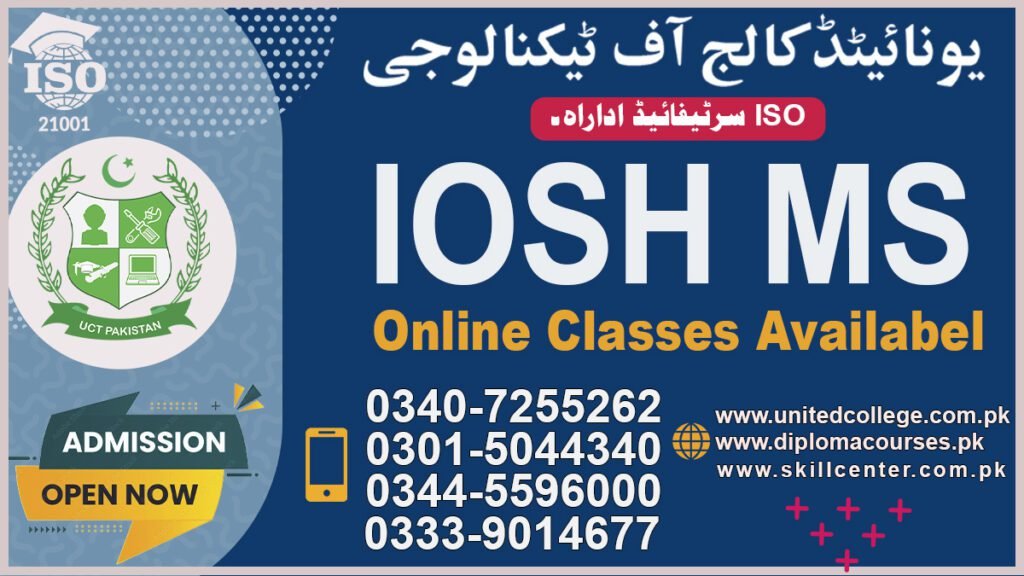
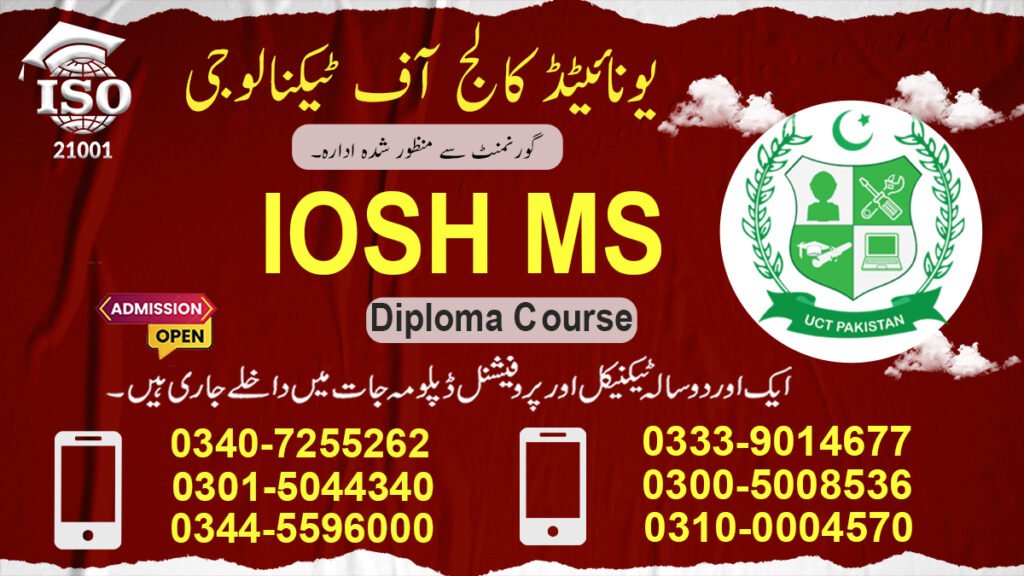
Contents
- 1 Introduction to IOSH MS Course in Karachi
- 2 What is IOSH?
- 3 Importance of IOSH Managing Safely Certification
- 4 Relevance of Health and Safety Training in Pakistan
- 5 United College of Technology – Your Gateway to IOSH
- 6 Detailed Overview of IOSH Managing Safely Course
- 7 Learning Experience at United College of Technology
- 8 Career Scope After IOSH MS Certification
- 9 Admission Process and Fees
- 10 Conclusion
- 11 FAQs

